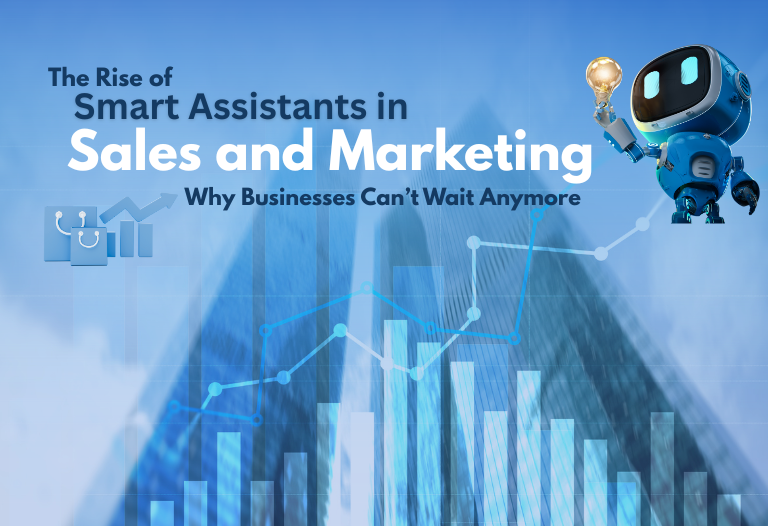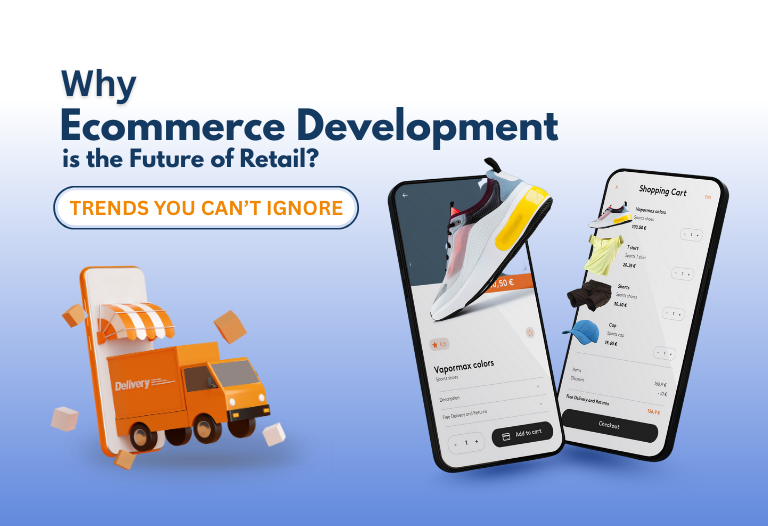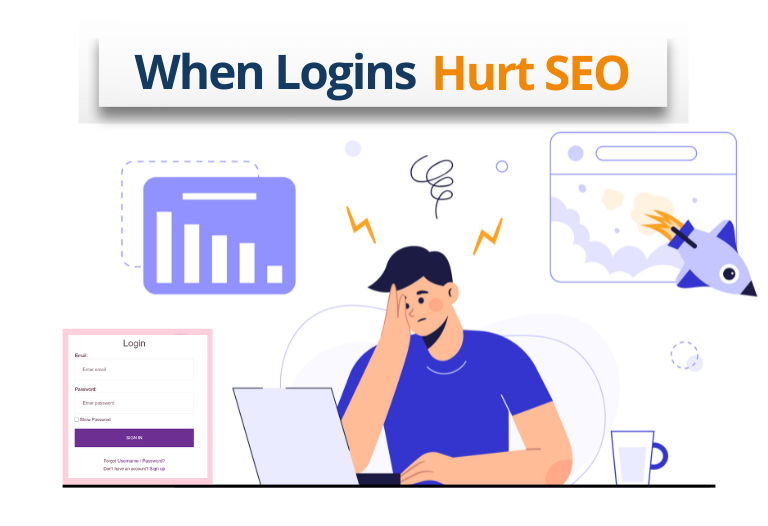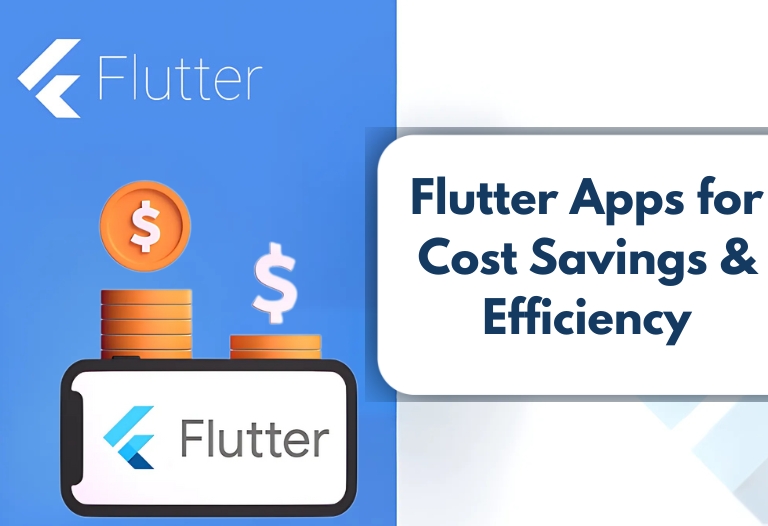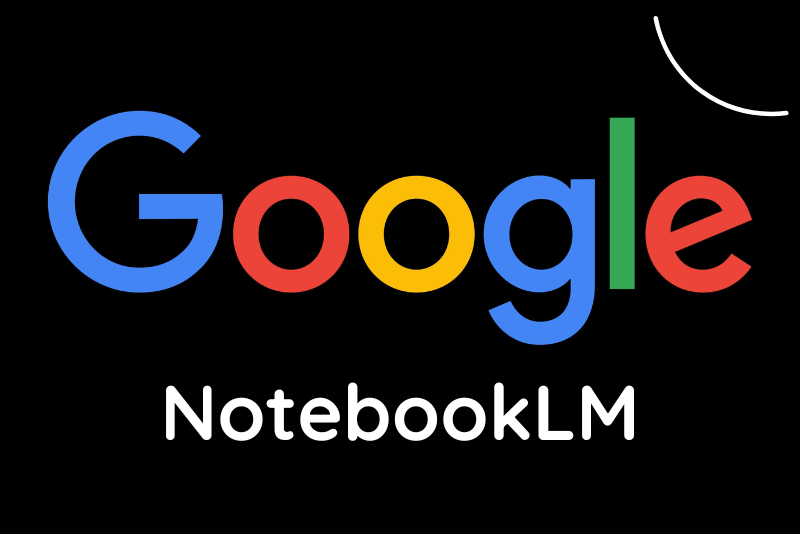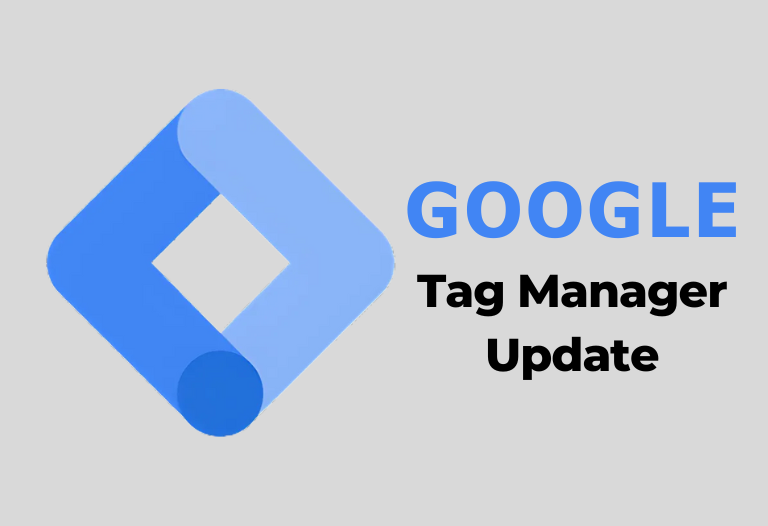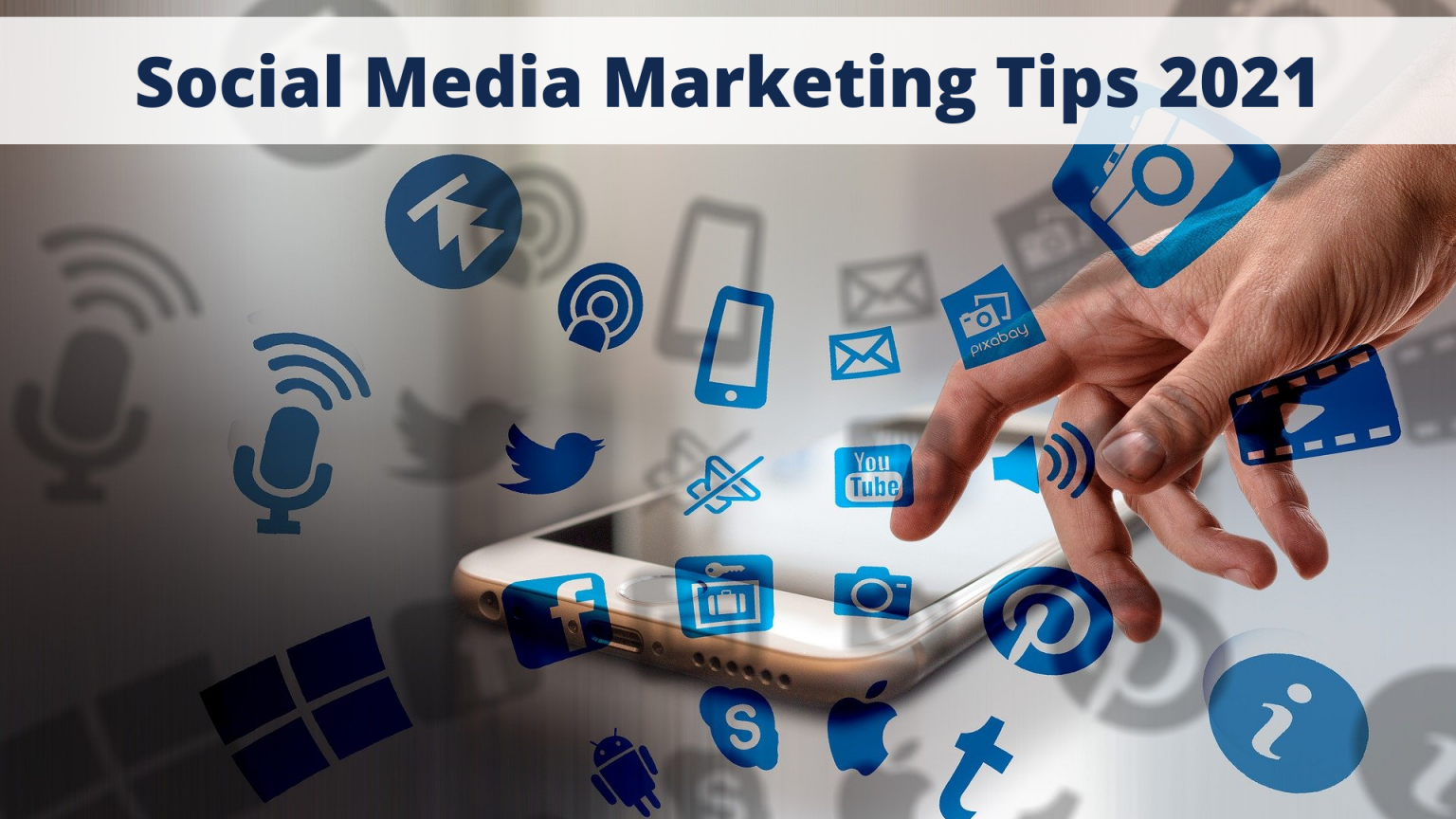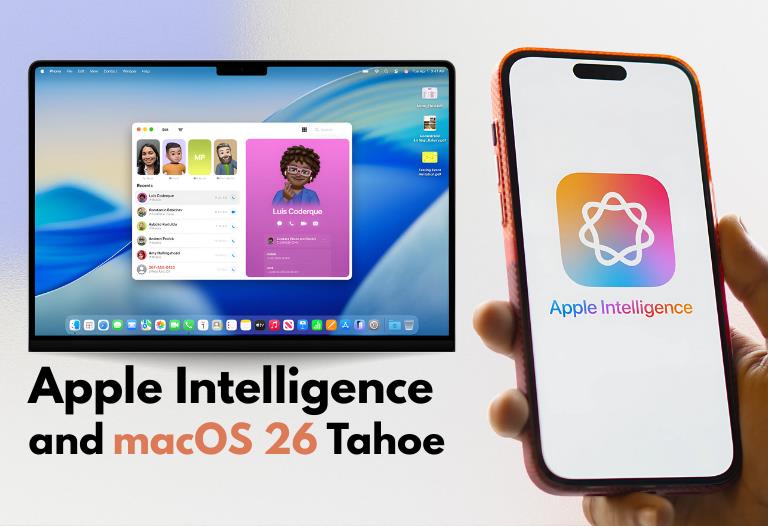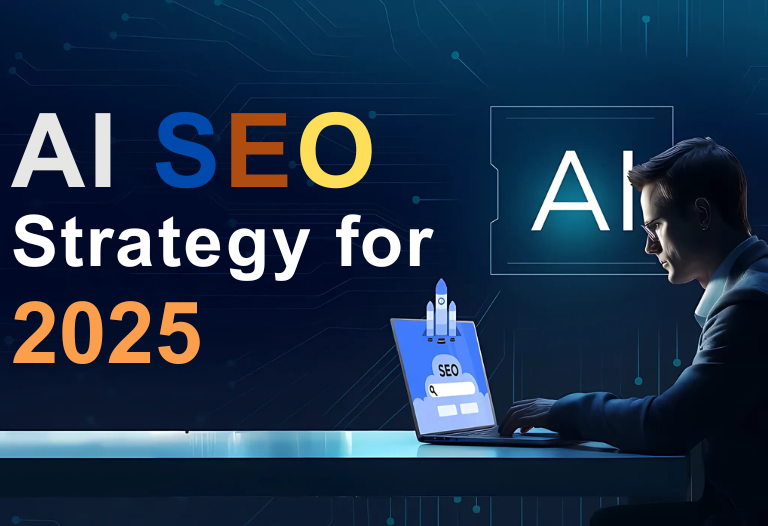
AI SEO Strategy proves one thing clearly: Search isn’t dying. It’s evolving. And if you’re still treating Google as the only search engine that matters, you’re already behind.
People are no longer searching in just one place. They’re asking ChatGPT, browsing TikTok, testing Perplexity, and still Googling, all at once.
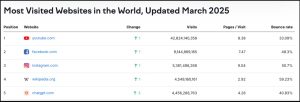
So the question is: Is your SEO strategy built for this fractured behavior?
Let me break it down for you.
1. SEO isn’t dead. It’s different.
“SEO is dead” gets searched every year. But here we are, still optimizing.
People are still searching and just not only through search engines. They’re asking the AI tools as well. Your audience is searching within YouTube, Reddit, Instagram, and yes, still Google.
So, you need to understand that the behavior didn’t die. It just shifted and evolved.
The rise of tools like ChatGPT or Google’s SGE (Search Generative Experience) just proves the point. Users want better answers, faster.
They’re not loyal to platforms. They’re loyal to results.
2. AI isn’t killing SEO. It’s reshaping it.
There’s a new term making rounds, GEO (Generative Engine Optimization).
Sounds fancy, but here’s what it is all about:
- AI search tools still rely on content, citations, and authority. The same things Google has rewarded for years. So if you’ve been publishing original content, using schema markup, getting press mentions, and quoting experts, you’re already ahead.
Only now, those same signals help your brand appear in AI Overviews, SGE snippets, and chatbot responses.
It’s SEO plus AI. Not SEO vs AI.
3. Google SGE and ChatGPT are changing how people discover information
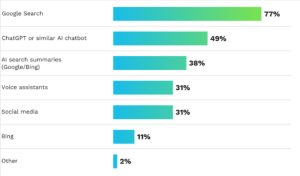
While 82% say AI search is more helpful than traditional Google results, don’t jump ship just yet.
Google still gets over 5 trillion searches a year. Most people are still clicking through to websites. The little blue links still matter.
So don’t abandon traditional SEO. Just stop treating it as the only channel.
Think of Google, ChatGPT, and social platforms as parallel highways. Same destination, different routes.
4. Why people are frustrated with Google?
Here’s where it gets real. People aren’t leaving Google because the answers are bad. They’re leaving because the experience is.
Ads at the top. Irrelevant answers. AI summaries that miss the point.
When the SERP feels crowded, people turn to AI tools for clarity.
No ads. Clean interface. Direct responses.
It doesn’t mean Google is over. But it does mean SEO has to evolve beyond rankings. You need to earn mentions and own the conversation across platforms.
5. Your content still matters, YES! even in an AI SEO world
AI tools still need data to generate answers.
So what are they pulling from?
- Structured content
- Author bios
- News citations
- Expert quotes
- Brand research
- Schema markup
If you’re not publishing this, you’re invisible in AI search.
Want to show up in Gemini, SGE, and ChatGPT summaries? Feed them the right signals.
Think of AI as your reader. It just happens to be a lot faster and more critical than a human.
6. Brand mentions and digital PR now matter more than backlinks
Link building isn’t dead, but it’s not enough.
AI tools don’t always credit links. They pull from mentions, authority, and entity recognition.
You want your brand name cited in reputable sources. Think trade publications, interviews, research papers.
The more often your brand is named alongside experts or trusted sources, the more likely AI is to use your name in its responses.
This is where SEO, PR, and content strategy overlap. It’s not about keywords anymore. It’s about authority.
7. Most marketers aren’t tracking AI visibility yet
Here’s a gap you can take advantage of.
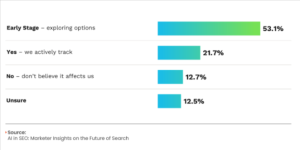
Only 22% of marketers are monitoring brand visibility in ChatGPT or other LLM tools. Yet 53% say they want to figure it out.
So how do you start?
- Track citations in AI tools like Perplexity or Bing
- Use tools like AlsoAsked, SEO.ai, or chatbots to run brand queries
- Compare traditional traffic vs referral traffic from AI search pages
It’s not perfect. But if you’re not measuring it, you can’t improve it.
8. Misinformation is a real concern. Here’s how to stay credible.
Consumers don’t mind AI content, if they trust the source.
74% are okay with AI-generated content. But they care where it comes from.
So if you’re using AI tools to create content, that’s fine. Just make sure:
- It’s fact-checked
- Reviewed by experts
- Tied to a human author
- Linked to proprietary data or real research
Don’t let your blog turn into a listicle factory. Keep your original insights in the mix.
If AI helps you write, you still need a person to guide it.
9. Don’t just publish more. Publish better.
AI can save time. But most teams just use that time to publish faster. That’s a waste.
Use the saved hours to build deeper content. Run original surveys. Train internal SMEs. Explore new channels.
93% of marketers say AI tools save time. But only 19% invest that time in skill-building.
This is your edge.
Use AI to amplify your strategy, not speed up mediocrity.
10. So what’s your actual AI SEO strategy for 2025?
Here’s the cheat sheet:
- Keep doing SEO — schema, blogs, and authority signals still matter
- Add AI search coverage — get quoted, get cited, get mentioned
- Track your brand in new places — SGE, Perplexity, ChatGPT
- Fix your content — clean up old pages, build author bios, add trust signals
- Use AI wisely — not to replace your team, but to help them work smarter
And most importantly, treat search as behavior, not just a platform.
If your customer is searching on Google today and ChatGPT tomorrow, your content needs to be ready for both.
The future of SEO isn’t a mystery. It’s just expanding.
Keep your AI SEO strategy clear. Stay visible across channels. And don’t panic.
If you have questions about ranking your business in AI overviews and want to learn more about AI SEO, feel free to reach out to us!




 July 21, 2025
July 21, 2025